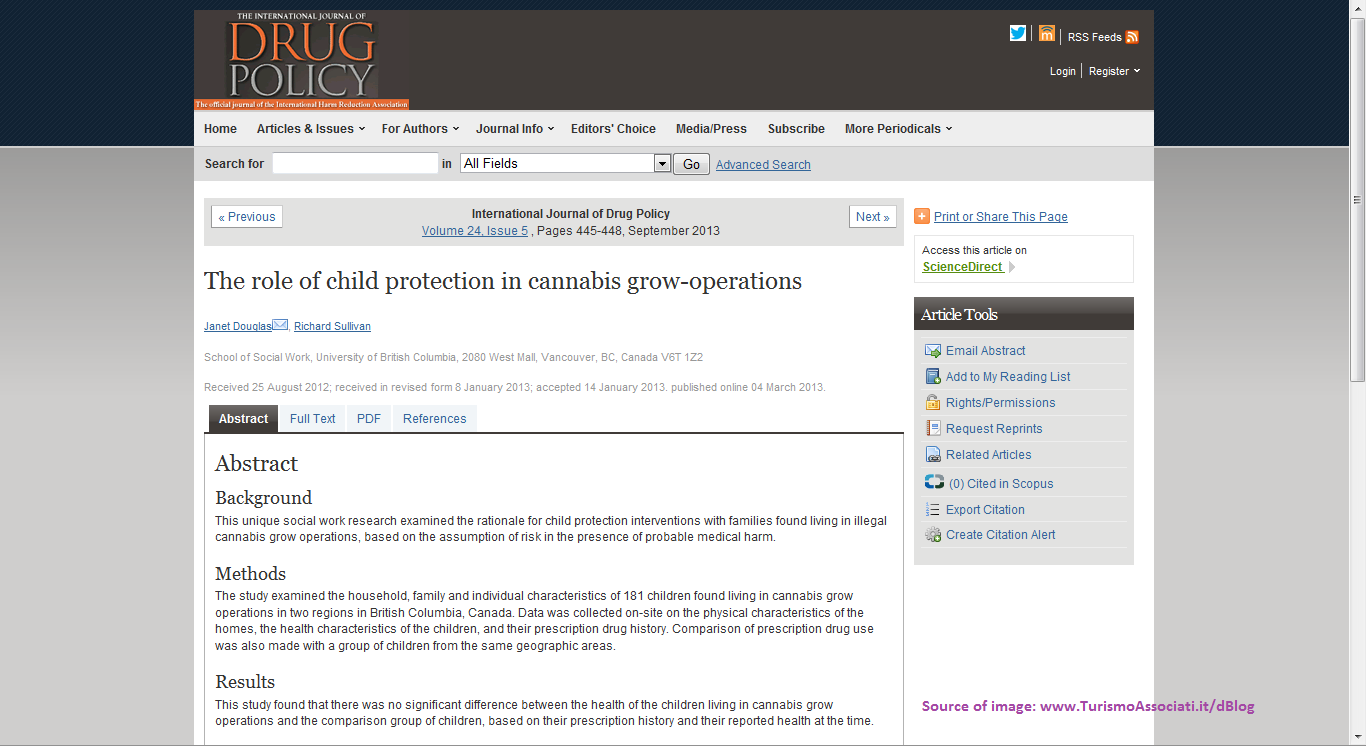Researchers from the University of British Columbia's School of Social Work have found that children living in homes where marijuana is grown show no noticeable health differences than those living in the average home.
The study, published in September 2013 in the International Journal of Drug Policy, was led by Janet Douglas, Ph.D, who has spent over 20 years as a child protection social worker in B.C. About a dozen of those years involved responding to cases of children living in marijuana grow-ops.

She believes the findings should serve as guidelines for social workers responding to similar cases.
"If we're going to say that children are at risk living in marijuana grow operations, then we need to be clear what those risks are. If there are no apparent health risks, then we need to scratch that off our list and not say that that's our concern if in fact we have no evidence to show that living in a grow-op impacts a child's health."
Dr. Douglas says the findings came as a surprise, since her experience led her to believe that grow-ops pose a number of health risks to children. Unsafe equipment involved with marijuana cultivation as well as molds and other air contaminants were some of her major concerns.
However, when Dr. Douglas and her colleague compared the relative health of children living in grow-ops, they found no significant differences in the amount of drugs prescribed for these children compared to their peers. Prescription data was gathered on 181 children living in grow-ops and 500 children in the comparison group.
"As far as a child welfare perspective, we just need to understand what our grounds for intervention are," says Dr. Douglas. "If these children are not at risk for health matters, then we need to not say that that's our grounds."
The study received funding from MITACS, BC Mental Health and Addictions Research Network, the BC Child and Youth Health Research Network and BC Ministry for Children and Family Development
Source: LeafScience.com